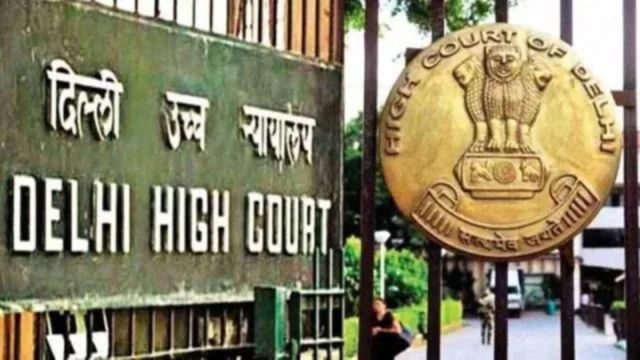‘Not proper for court to intervene’: Delhi HC on plea over ‘deepfake’ videos
“There is a digital footprint which never disappears. If someone thinks that by disabling url you can disable the content... that is very difficult…" remarked the bench.
 The plea refers to instances of “deepfake videos” involving actor Ranveer Singh, and Home Minister Amit Shah, among others. (Express file photo)
The plea refers to instances of “deepfake videos” involving actor Ranveer Singh, and Home Minister Amit Shah, among others. (Express file photo)While disposing of a plea seeking directions to the Election Commission of India (ECI) to “address public harm” caused due to the circulation of “deepfake videos”, the Delhi High Court on Thursday said it won’t be appropriate for the court to pass directions to the constitutional body in the middle of the Lok Sabha polls.
The court was hearing a PIL moved by a lawyers body called ‘Lawyers’ Voice’ seeking directions to the ECI to formulate guidelines for the “verification of video messages to peremptorily weed out deepfake videos and regulation of the use of deepfake technologies” in any media that may be employed for reaching out to voters — following the enforcement of the Model Code of Conduct (MCC), until the declaration of the poll results.
During the hearing, a division bench of Acting Chief Justice Manmohan and Justice Manmeet Pritam Singh Arora asked the petitioner to file a “comprehensive representation with the ECI during the day (Thursday).” “ECI is directed to decide this as expeditiously as possible on or before May 6, keeping in view the urgency of the matter involved, in accordance with law,” said the HC.
The ECI counsel, meanwhile, said that “any appropriate steps which have to be taken” shall be taken by the poll body.
During the hearing, the bench orally said: “At this moment, it will not be proper for the court to intervene with the jurisdiction of the ECI at all. Let’s leave the ECI to its own. It is a constitutional body.” Asking the petitioner to make a representation with the ECI, the bench orally said: “We can only recommend the ECI to examine this aspect. At this moment, the court cannot pass a direction. Once it (ECI) is entrusted with the conduct of elections, the court’s interdiction at this stage will not be proper. We are in the midst of an election. Let us trust the ECI. They will act.”
Senior advocate Jayant Mehta appearing for the petitioner said: “If the ECI finds that 24 hours is working to the detriment of the system, it can take action, it has the power,” argued Mehta.
The ECI counsel then said that it has a standard operating procedure in place, where if a complaint is received about any “fake news, video, misinformation”, it is verified, fact-checked, and then the social media platform concerned is told to take action.
Mehta, meanwhile, said: “They have a pre-certification mechanism for political advertisements in place for print and electronic media. I’m not asking for something that is not there… If you cannot issue an advertisement soliciting votes, then you can’t go over this requirement by ‘misinforming the electorate’ about rival political parties. What you can’t do directly, you cannot do indirectly. That’s the principle. If they are pre-certifying advertisements, how is it that they cannot look into any video posted online?” During an election process, the ECI has powers to step in and ensure free and fair elections take place as it is “an extraordinary situation”, Mehta added.
Meanwhile, responding to the court’s query on how long it takes for social media platforms to take action on deepfake content following an ECI order, the counsel appearing for Google said that it is taken down in 24 hours.
Mehta, however, said that even 24 hours is too long. “When I complain to the ECI, they would require a URL. If I have 5 URLs, by the time the ECI acts, it will be 50 but those 45 URLs won’t be with the ECI. By the time the ECI writes to social media intermediaries, it would have multiplied. These urls multiply and there is no system in place to stop them… What I’m suggesting is that the ECI may step in… it must instruct social media intermediaries to ensure that it is not replicated,” emphasised Mehta.
The bench, however, orally observed: “It does not work like this. There is a digital footprint that never disappears. If someone thinks that by disabling the URL you can disable the content… that is very difficult… Previously also, rumours would be spread about the candidate. That is not new.” To this, Mehta said that the situation now is “a lot more vicious and fast”.
At this stage, the counsel for the ECI said, with respect to instances mentioned in the petition of “deepfake” content, “criminal complaints have been filed and subsequently FIRs have been registered”. “The videos where complainants say they are deepfake, those accounts have been withheld by Twitter (X),” said the ECI counsel.
The plea refers to instances of “deepfake videos” involving actor Ranveer Singh, and Home Minister Amit Shah among others, stating that they illustrate the harm “caused by the utilisation of such technology in the democratic ecosystem”. Among other prayers, the plea also sought an interim direction to Google, Meta, and X (formerly Twitter) to take down and block “deepfake content concerning political candidates/ representatives/ leaders and/ or public figures on their respective social media platforms” until the declaration of parliamentary poll results on June 4.







